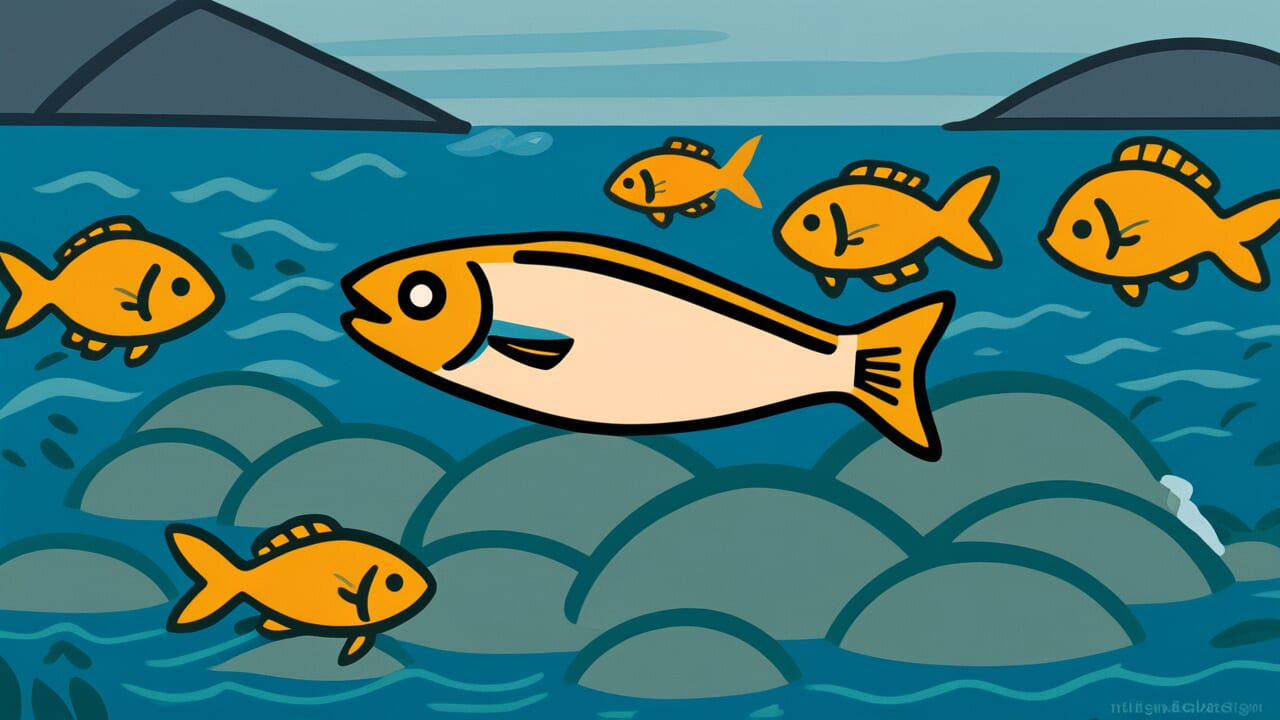How to Read “Tomorrow’s big catch”
Tairyō no ashita
Meaning of “Tomorrow’s big catch”
“Tomorrow’s big catch” is a proverb that warns us not to assume tomorrow will bring the same success as today.
It teaches that we should stay humble and avoid complacency, especially when things are going well.
This proverb applies to many situations. You might use it after your business has a great quarter, after you ace a test, or after achieving big results at work.
These moments of success are exactly when you should remember “Tomorrow’s big catch.” Success often makes people relax and stop putting in effort.
The meaning hasn’t changed in modern times. Business leaders who land major contracts, athletes who win competitions, and students who get good grades all understand this truth.
After success comes the need for preparation and humility. When you’re riding high, that’s when you should look at your feet and prepare for the next wave.
This is the path to lasting success that “Tomorrow’s big catch” teaches us.
Origin and Etymology
The origin of “Tomorrow’s big catch” has no clear written record. However, it likely came from coastal communities in Japan where fishing was a way of life.
Fishermen lived their lives facing the ocean’s gifts every day. Some days, they would pull up their nets overflowing with fish.
But if they got carried away by that big catch and thought “tomorrow will be just as good,” they might catch nothing the next day.
The sea is unpredictable and doesn’t bend to human will.
This saying emerged from the harsh reality of depending on nature’s bounty. A big catch is certainly cause for celebration.
But if you drown in that joy and neglect preparation or forget humility, you won’t be ready when the fish don’t come.
Fishermen learned from experience. Today’s success doesn’t promise tomorrow’s. In fact, when things are going well, you need to stay sharp and prepare for what’s next.
This lesson applies not just to fishing but to business and life in general. That’s why it spread widely as wisdom.
The lived experience of people who made their lives with the sea is embedded in this proverb.
Usage Examples
- This quarter had record sales, but keeping “Tomorrow’s big catch” in mind, let’s rethink our strategy for next quarter
- I got a perfect score on this test, but “Tomorrow’s big catch” reminds me not to get careless and to keep studying for the next one
Universal Wisdom
The universal truth in “Tomorrow’s big catch” is about a human trait: our intoxication with success.
When good things happen, we all tend to believe “this will last forever.” Our brains have a tendency to project the present state into the future.
What’s interesting is that this illusion is most dangerous precisely when we’re succeeding. When we’re failing, we stay alert.
But when we’re winning, we become defenseless. We get drunk on victory, ease up on effort, and neglect preparation.
Then when the next wave comes, we can’t handle it and fall.
This proverb has endured because it captures this human weakness so accurately. Success blinds people.
We start thinking “I have talent” or “luck is on my side,” and forget the importance of steady effort.
But nothing stays good forever in this world.
Our ancestors knew this. Life is like waves—what goes up must come down. That’s why you should be humble when you’re rising, and never stop preparing.
This wisdom shows a deep understanding of human nature that never fades with time. The real test comes after success. That’s the truth of life.
When AI Hears This
Expecting another big catch the day after a big catch happens because of “pattern recognition overreaction” in the human brain.
Our brains have a habit of judging “this is a continuing trend” from just one success. Basketball research shows something interesting.
After a player makes three shots in a row, the actual success rate of the next shot doesn’t change. Yet both the audience and the player believe “the next one will go in too.”
This is called the hot hand fallacy.
What’s fascinating is that natural phenomena like fishing yields have a statistical property: “after extreme results, things return to average.”
For example, say a fishing area averages 100 tons per year. If you catch 200 tons this year, that’s because weather conditions, fish migration patterns, and other factors happened to align.
The probability of all these factors lining up the same way next time is low. So next year will likely return to around the 100-ton average.
This phenomenon appears in investing too. Buying a stock right after it surges often leads to losses because prices regress to the mean.
Human intuition creates the illusion that “the current momentum will continue.” But statistically, “extreme states don’t last long” is nature’s law.
Lessons for Today
“Tomorrow’s big catch” teaches us that the moment of success is the most important turning point.
When you achieve good results, people around you will celebrate. But that’s exactly when you should remember this proverb.
In modern society, it’s easy to share success on social media and receive praise. But those “likes” might lead you to complacency.
What matters is celebrating success while turning it into fuel for what’s next.
Specifically, make it a habit to return to basics when things are going well. Review expenses in your best sales month.
Reflect on your study methods after getting good grades. Don’t forget gratitude in relationships that are working well.
This “contrarian” attitude is the key to sustained success.
Success isn’t a destination—it’s a new starting point. Celebrate today’s big catch honestly, then begin preparing for tomorrow.
Real growth happens in that repetition. When a “big catch day” comes in your life, use it as a springboard for your next leap forward.



Comments